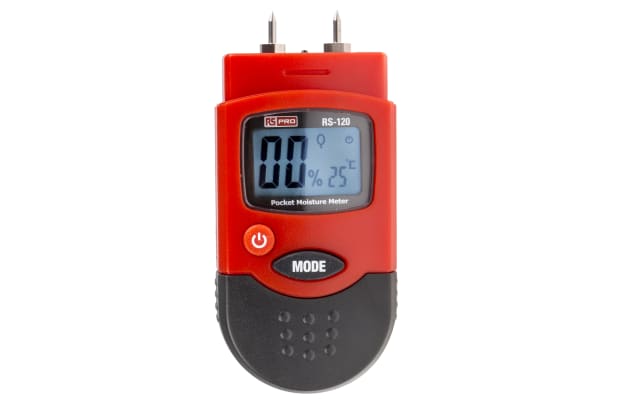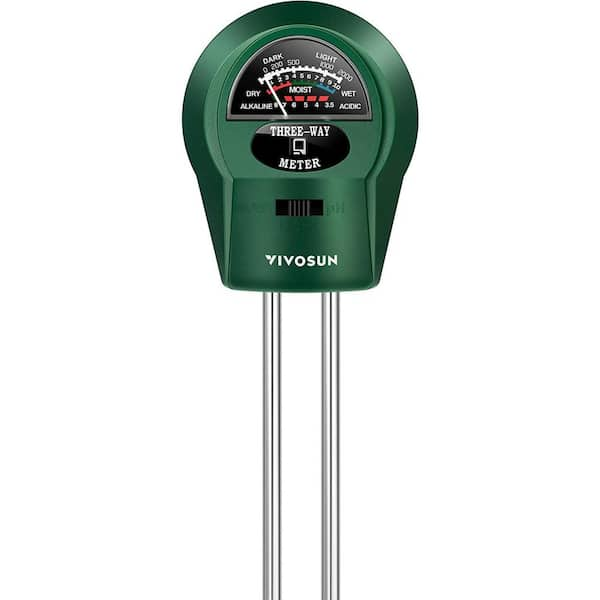Moisture Meter Reviews: Contrasting the most effective Versions for Specialist and DIY Usage
Moisture Meter Reviews: Contrasting the most effective Versions for Specialist and DIY Usage
Blog Article
The Ultimate Guide to Moisture Meters: A Comprehensive Summary and Just How They Can Save You Money
In the realm of building upkeep, construction, and numerous sectors, the relevance of properly determining wetness levels can not be overstated. Moisture meters work as indispensable devices in identifying and checking moisture web content in products, helping in avoiding costly problems and making sure the high quality of products. Comprehending the nuances of various sorts of moisture meters, their applications, and the prospective cost-saving benefits they offer can be a game-changer for professionals and organizations alike. Finding how these tools can not only streamline procedures however likewise add to monetary savings is a trip worth embarking on.
Kinds of Moisture Meters
Different kinds of wetness meters are available for various applications in various sectors. One typical kind is the pin-type wetness meter, which gauges the electrical resistance in between two pins put into a product. This type is ideal for wood, drywall, and other building materials. Pinless dampness meters, on the other hand, use electromagnetic sensing unit plates to scan a bigger area without triggering damages to the material's surface area. These meters are optimal for rapidly assessing wetness degrees in large locations such as walls and floorings.
Additionally, there are additionally specialized moisture meters developed for certain products like hay, soil, or grain. These meters provide precise dampness analyses customized to the unique buildings of the material being evaluated. Infrared dampness meters determine the thermal buildings of a product to establish its moisture material non-invasively, making them beneficial for applications where pin or pinless meters might not appropriate. Recognizing the various kinds of wetness meters offered can assist markets select the most suitable tool for their certain moisture dimension demands.

Advantages of Using Moisture Meters

Moreover, making use of moisture meters can result in raised energy efficiency. By determining locations with high dampness levels, such as leaks or bad insulation, changes can be made to improve energy conservation and minimize energy prices. In agricultural settings, wetness meters play a crucial role in enhancing crop returns by enabling farmers to keep track of soil wetness levels and make notified watering choices. Overall, the benefits of using moisture meters span across various markets, giving cost-effective solutions and promoting better quality control practices.
Exactly How to Select the Right Moisture Meter
Selecting the ideal moisture meter entails taking into consideration crucial factors such as material compatibility, dimension variety, and calibration accuracy. When picking a wetness meter, it's vital to ensure that the meter is ideal for the details product you will be screening. Different products have differing electrical residential properties that can impact moisture analyses, so selecting a meter designed for your product is vital why not find out more for accurate outcomes. Additionally, take into consideration the measurement series of the dampness meter. Make sure that the meter can find moisture degrees within the range required for your applications. Calibration precision is one more critical factor to maintain in mind (Moisture Meter). Select a moisture meter with reliable calibration to make certain constant and exact analyses. Some meters may call for periodic calibration adjustments, so recognizing the calibration procedure is essential. By carefully reviewing these factors, you can select a wetness meter that meets your requirements and gives accurate wetness dimensions for your tasks.
Correct Methods for Moisture Meter Usage
To ensure exact wetness readings and make best use of the efficiency of a wetness meter, using appropriate techniques is important. When utilizing a pin-type dampness meter, put the pins or probes into the product being checked until they make complete contact. By site here adhering to these appropriate techniques, customers can rely on their dampness meter to offer trustworthy dampness levels, assisting in avoiding pricey damage or making certain high quality in various applications.

Cost Financial Savings Via Moisture Meter Applications
How can the calculated application of moisture meters lead to significant expense financial savings throughout different sectors? In the farming sector, moisture meters aid in establishing the optimum time for harvesting crops, stopping excess or over-drying moisture that can impact the final product's high quality.

Additionally, in the food processing market, wetness meters are essential for keeping track of product high quality and making sure conformity with security laws. By properly gauging moisture content in food, producers can avoid putridity, preserve freshness, and decrease waste, resulting in substantial cost financial savings. Generally, the calculated application of wetness meters is an important investment that can result in substantial cost reductions and boosted performance throughout different industries.
Conclusion
In verdict, moisture meters are important tools for detecting and determining wetness degrees in various products. By using the best dampness meter and complying with correct techniques, customers can properly protect over here against expensive problems caused by excess wetness.
Dampness meters serve as crucial tools in finding and keeping track of moisture material in products, aiding in stopping pricey damages and guaranteeing the high quality of items. Infrared dampness meters measure the thermal properties of a material to identify its dampness web content non-invasively, making them useful for applications where pin or pinless meters may not be suitable.Wetness meters use very useful advantages in precisely examining and checking moisture levels in diverse materials and environments. In agricultural settings, wetness meters play a crucial role in optimizing crop yields by enabling farmers to keep an eye on dirt dampness degrees and make educated watering choices.In final thought, wetness meters are useful devices for finding and gauging dampness degrees in different materials.
Report this page